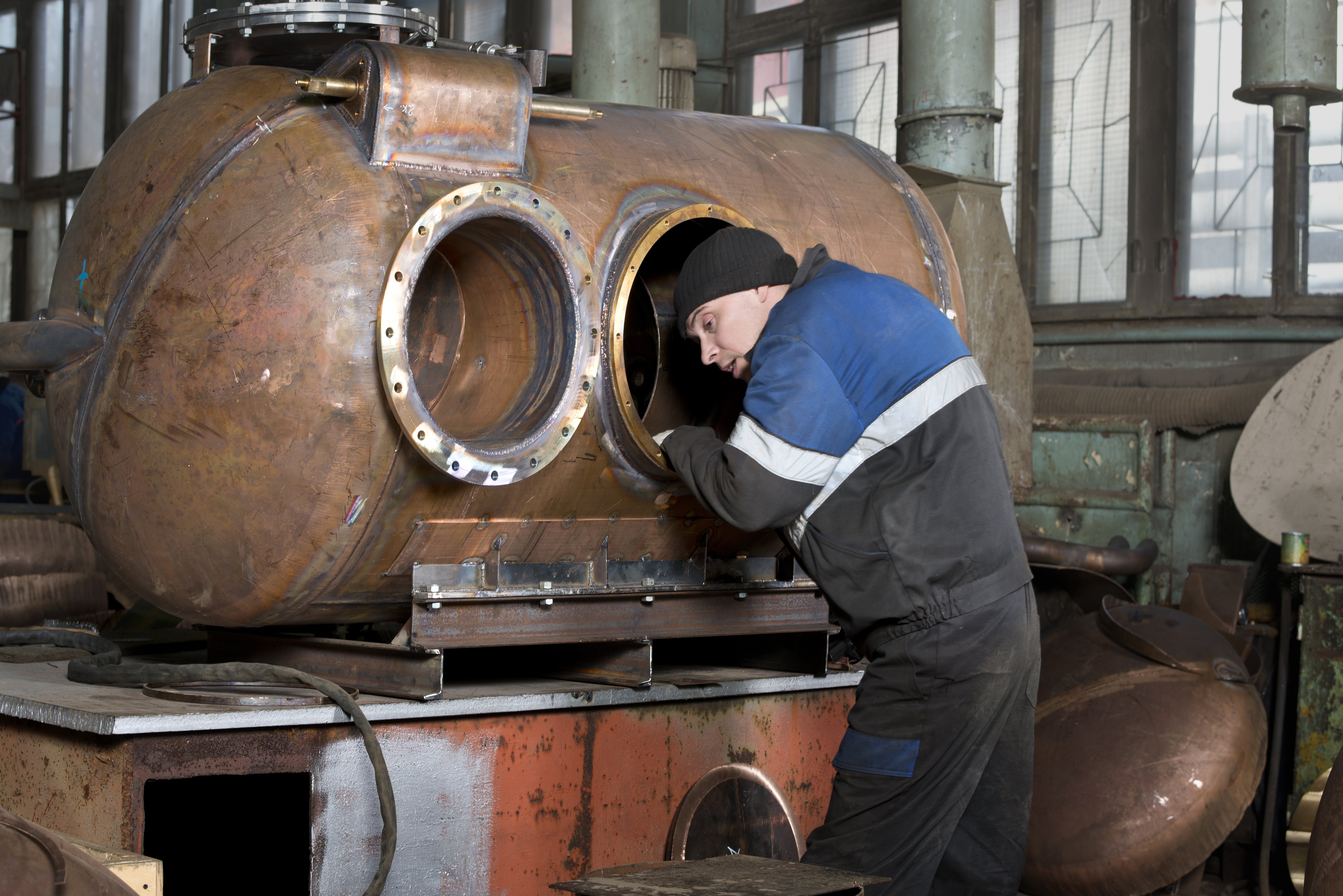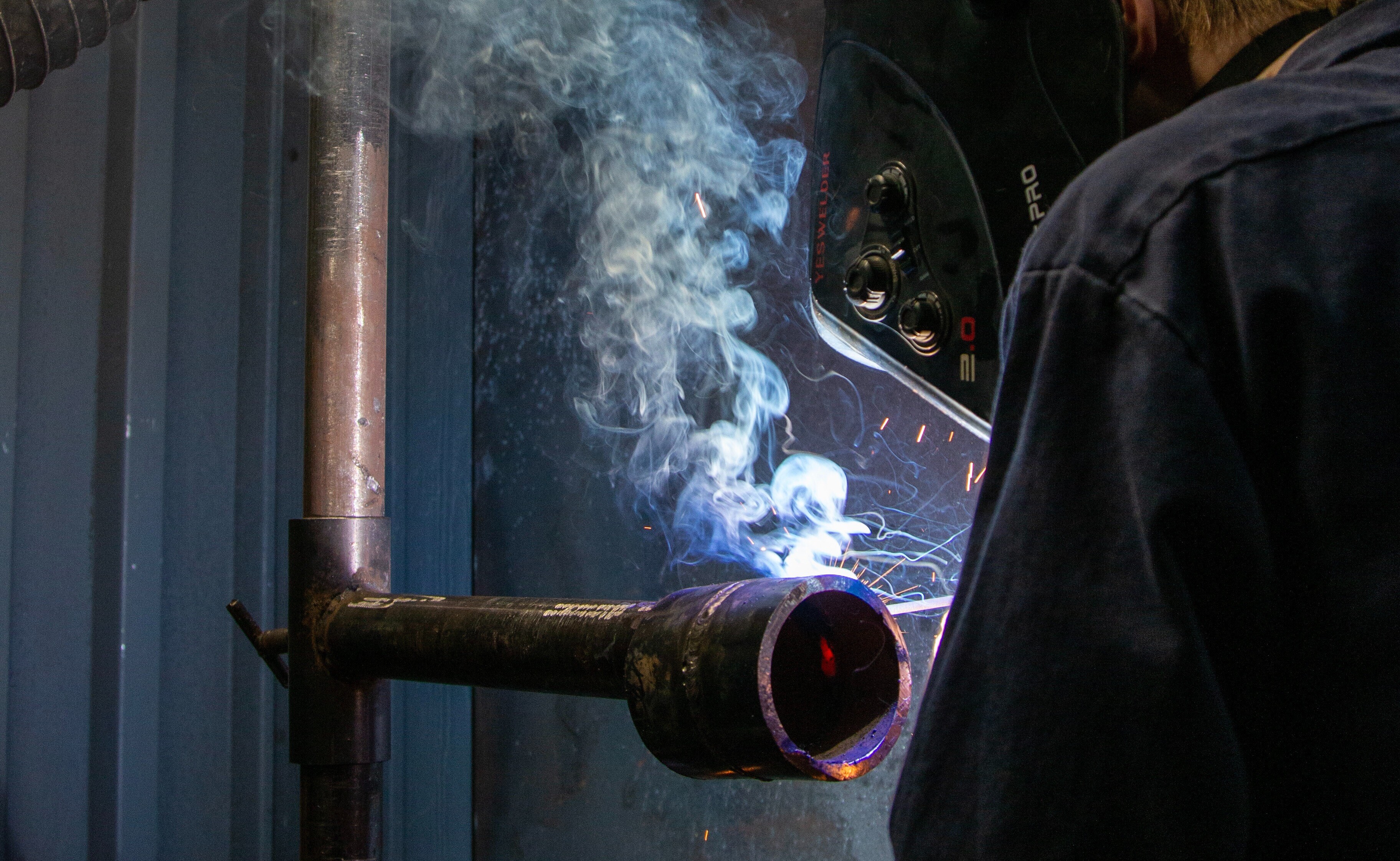A boilermaker is a skilled tradesperson who fabricates, assembles, installs, and repairs boilers, tanks, and other large vessels used to hold liquids and gases. These professionals work in industries such as power generation, manufacturing, shipbuilding, and construction. Boilermakers are essential for maintaining and ensuring the safety of high-pressure systems that are critical to industrial operations. This guide explores the roles and responsibilities of a boilermaker, required skills and qualifications, and how this trade differs from welding.
Quick Links
-
What Is a Boilermaker Job Description?
-
Boilermaker Skills & Qualifications
-
What Is the Difference Between a Boilermaker and a Welder?
-
What Is a Boilermaker Job Description?
-
What Is Required to Become a Boilermaker?
-
The Work Environment of a Boilermaker
-
Conclusion
What is a Boilermaker Job Description
The job of a boilermaker is centered on the construction, maintenance, and repair of boilers and large storage tanks. Boilers are vessels designed to heat water or other fluids under pressure, while storage tanks are used to hold liquids like chemicals, oil, or gas. The typical responsibilities of a boilermaker include:
- Reading blueprints and technical drawings to determine project requirements.
- Cutting, shaping, and assembling metal components to create boiler systems.
- Installing boilers in factories, power plants, or ships, ensuring proper alignment and safety compliance.
- Conducting inspections to detect defects or wear in existing systems.
- Repairing or replacing damaged parts using tools such as torches, welding equipment, and grinders.
- Performing routine maintenance to ensure the efficiency and safety of boilers.
Boilermakers often work in physically demanding environments, such as power plants, industrial facilities, or shipyards, where they may be required to climb, lift heavy materials, and operate in confined spaces.

Boilermaker Skills & Qualifications
Boilermakers must possess a combination of technical skills, physical stamina, and attention to detail. The skills and qualifications commonly associated with this trade include:
- Technical Knowledge: A strong understanding of welding techniques, blueprint reading, and metal fabrication is essential. Boilermakers must also be familiar with safety regulations and industrial standards.
- Mechanical Aptitude: The ability to troubleshoot and repair mechanical systems is a key part of the job.
- Physical Strength and Stamina: Boilermakers frequently lift heavy materials, work in awkward positions, and endure long hours in challenging conditions.
- Attention to Detail: Precision is critical when fabricating and assembling boiler components, as even small errors can compromise the integrity of a system.
- Problem-Solving Skills: Boilermakers must quickly assess and address issues with existing systems, often under time-sensitive conditions.
In addition to these skills, boilermakers typically need formal training or apprenticeships to gain the hands-on experience required for the job.
What Is the Difference Between a Boilermaker and a Welder?
While boilermakers and welders share overlapping skills, their roles and responsibilities differ significantly. Welders focus primarily on joining metal parts using various welding techniques. Their work is often task-specific, such as creating joints or repairing cracks in metal structures.
Boilermakers, on the other hand, have a broader scope of responsibilities that includes not only welding but also fabricating, installing, and maintaining entire systems. For example, a boilermaker might weld metal components as part of constructing a boiler, but they are also responsible for aligning the parts, securing the system, and conducting maintenance after installation.
Another key difference lies in the industries they serve. Welders work across various fields, including construction, automotive repair, and artistic fabrication, while boilermakers primarily focus on industrial applications like power plants, refineries, and shipbuilding.
What Is Required to Become a Boilermaker?
Becoming a boilermaker typically involves a combination of education, training, and on-the-job experience. The following steps outline the most common pathway to this career:
- Education: A high school diploma or equivalent is usually required. Courses in math, physics, and blueprint reading can provide a strong foundation for this trade.
- Apprenticeship: Most boilermakers enter the trade through a formal apprenticeship program, which combines classroom instruction with hands-on training. These programs typically last three to four years and cover topics such as welding, metal fabrication, and safety protocols. Apprenticeships also provide the opportunity to work under the supervision of experienced boilermakers.
- Certification: While not always required, certifications can enhance job prospects. For instance, obtaining a welding certification demonstrates proficiency in a critical skill. Some employers may also require certification in specific safety protocols or equipment operation.
- Physical Fitness: The job’s physical demands mean that candidates should be in good health and capable of handling strenuous tasks.
By completing an apprenticeship and gaining the necessary certifications, aspiring boilermakers can acquire the technical skills and experience required for this trade.

The Work Environment of a Boilermaker
Boilermakers often work in industrial settings such as power plants, refineries, or shipyards. These environments can be physically demanding and sometimes hazardous, requiring strict adherence to safety standards. Common aspects of a boilermaker’s work environment include:
- Physical Labor: Climbing scaffolding, working in confined spaces, and lifting heavy materials are routine tasks.
- Exposure to Elements: Boilermakers may work outdoors in various weather conditions or in hot, noisy environments near boilers or furnaces.
- Travel: Some jobs require travel to different sites, especially for installation or maintenance projects.
Despite these challenges, many boilermakers find the work rewarding due to its hands-on nature and the opportunity to contribute to critical infrastructure.
Conclusion
Boilermakers play an essential role in constructing and maintaining the systems that power industries and infrastructure. With skills in welding, metal fabrication, and system maintenance, these professionals ensure the safety and efficiency of boilers and storage tanks.
Understanding the difference between boilermakers and welders, as well as the skills and qualifications required for the trade, highlights the unique expertise boilermakers bring to industrial projects. If you’re interested in exploring a trade-focused career path, consider researching programs that align with your goals and offer hands-on training at Advanced Technology Institute.
Industry Knowledge
Welcome to the Advanced Technology Institute's Blog, your resource for industry insights and discussions on technologies shaping the future of automotive, heavy vehicle, hvac, welding, and other related career paths.
Explore how ATI's curriculum and hands-on learning opportunities can propel your career in the tech-driven world.

%20(1).jpg)

%20(1).jpg)